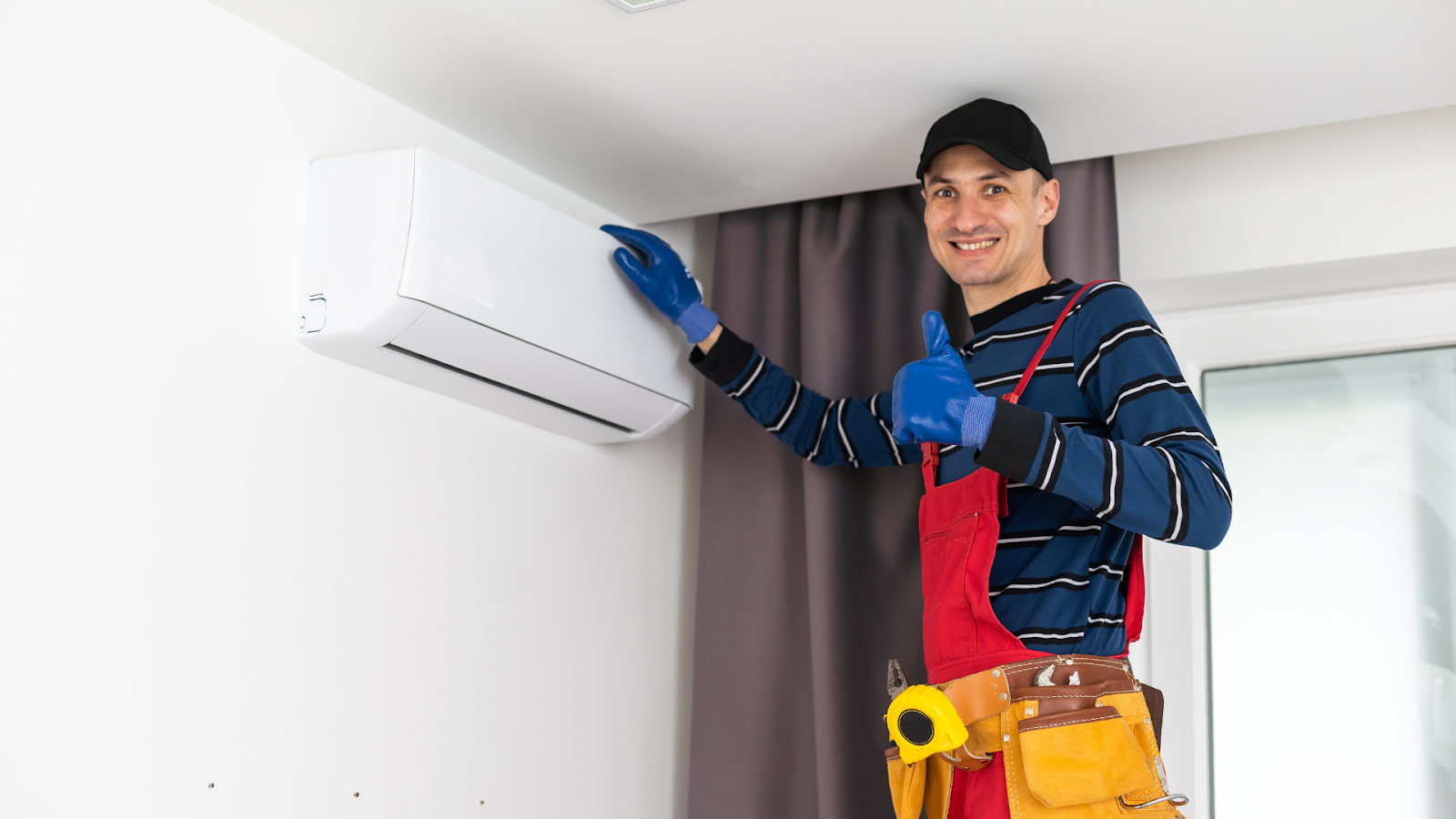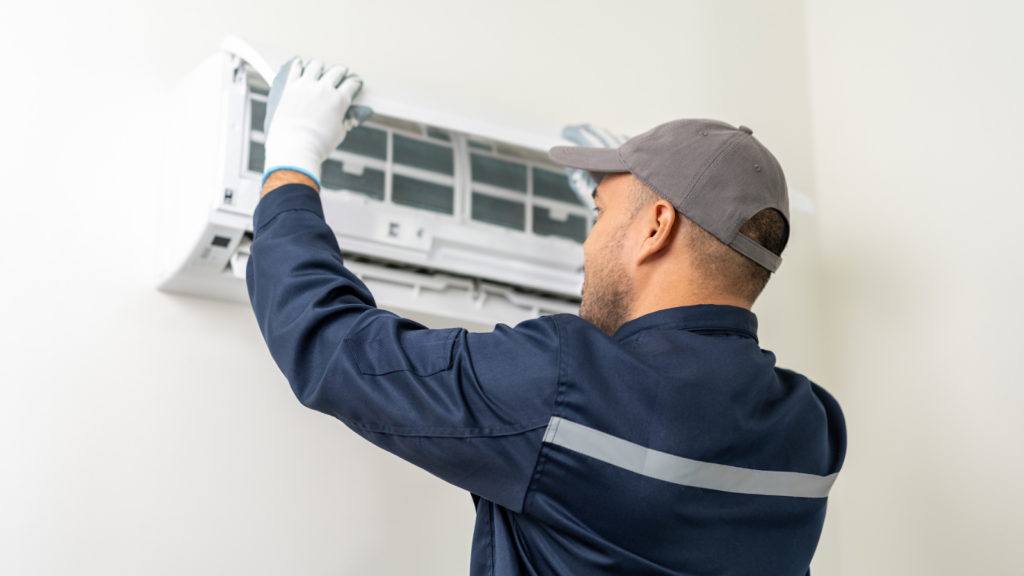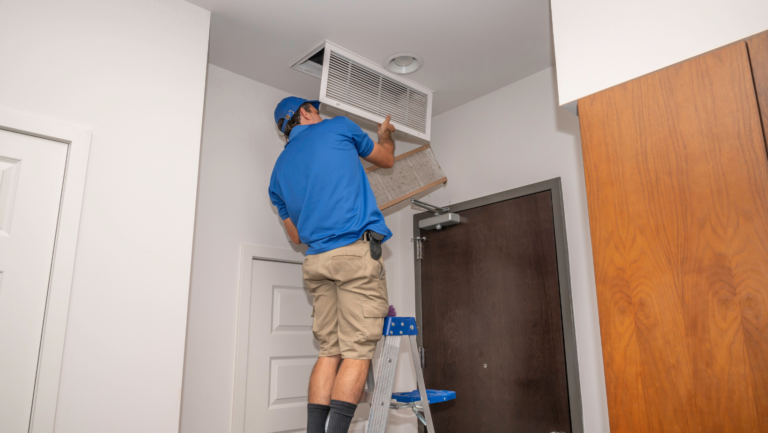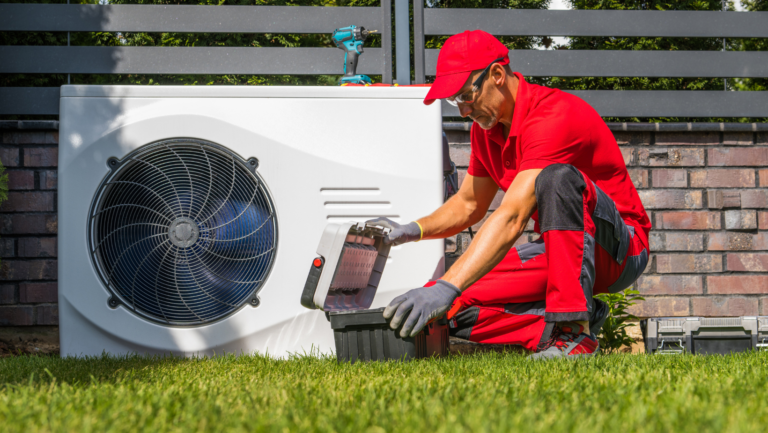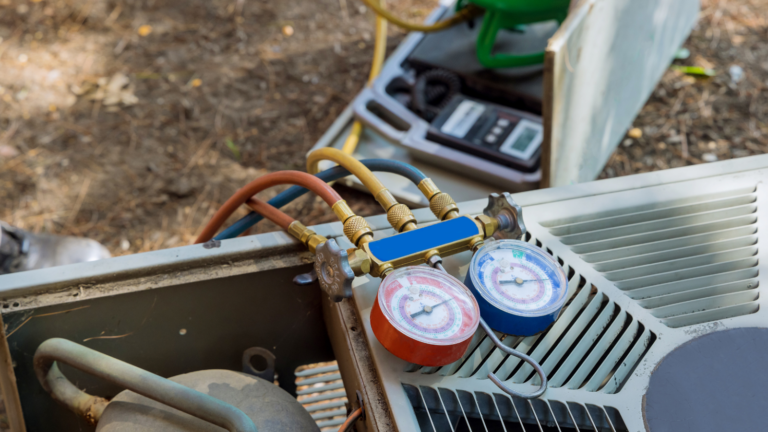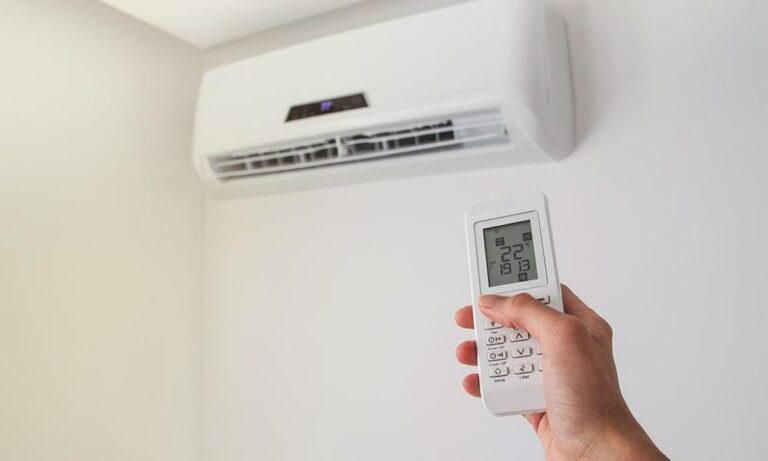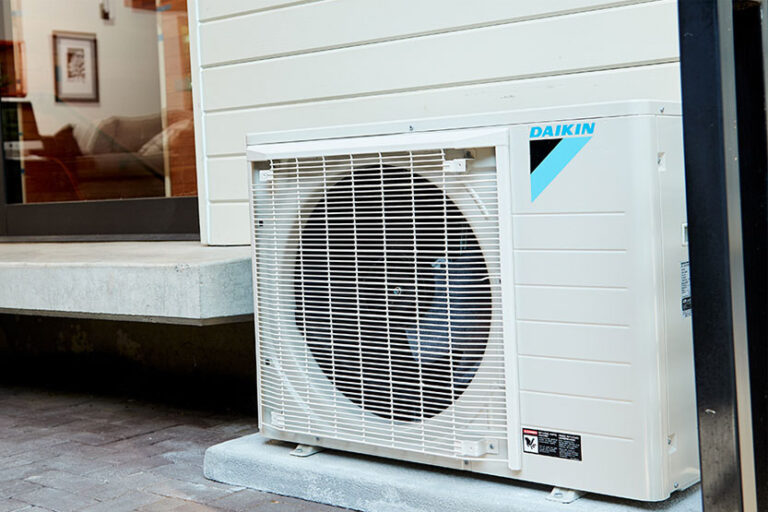The Lifespan of AC Units: Everything You Need to Know
As summer approaches and temperatures rise, the sound of air conditioning units becomes a common background noise. However, have you ever taken a moment to appreciate the technology behind your AC unit, beyond its ability to provide relief from the heat?
Air Conditioning units, or AC units as we fondly call them, are our silent guardians against the relentless heat, tirelessly working to keep our spaces cool and comfortable. AC units are complex systems designed to remove heat and moisture from the interior of an occupied space, improving the comfort of occupants and, in many cases, preserving the integrity of homes and buildings.
The significance of AC units stretches far beyond the comfort of a cool breeze on a hot day. They play a crucial role in safeguarding the health and well-being of families, particularly in regions where extreme heat poses a serious risk. Air conditioners contribute to a safer indoor environment, reducing the prevalence of heat-related illnesses and enhancing the quality of life. Furthermore, they protect our homes and workplaces from the adverse effects of excessive humidity, such as mold growth and damage to building materials.
Factors Affecting Lifespan
Quality installation ensures efficient operation and prevents premature wear while neglecting maintenance can lead to reduced efficiency and costly repairs. Climate conditions, particularly in hot and humid regions, exert additional stress on AC units, impacting their lifespan and the overall effectiveness of the cooling system.
Quality of Installation
First things first, a good start leads to a longer journey. The quality of installation can make or break your AC’s lifespan. A professionally installed unit, properly sized and correctly positioned, will run more efficiently and have fewer issues over time.
Maintenance Practices
Think of your AC unit like a car; regular check-ups keep it running smoothly. Neglecting maintenance can lead to a buildup of dirt and debris, which strains the system and shortens its life. Regular cleaning, timely filter changes, and professional servicing are non-negotiables for a healthy AC.
Climate Conditions
The climate you live in plays a big role, too. Units in areas with extreme heat, humidity, or salt air face tougher conditions and may have a shorter lifespan. The harder your AC has to work to combat these elements, the more wear and tear it endures.
Usage Frequency
Lastly, how often you use your AC impacts its lifespan. Constant use without breaks can wear it out faster, while moderate use with proper care can help it last longer. It’s all about finding the right balance to keep your unit from overworking.
Understanding AC Unit Lifespan
Wondering how long do AC units last? Understanding the lifespan of your air conditioning unit is important for maintenance and budgeting. Typically, air conditioners last between 10 to 15 years with proper care. Regular inspections and addressing signs of wear can help extend the lifespan of your AC system unit, ensuring optimal performance and comfort for years to come.
Average Lifespan of Different AC Unit Types
Central AC Units: Central air conditioning units are designed to cool down your entire home, and have an impressive lifespan of about 15 to 20 years. However, this number can swing based on how well they’re maintained and the quality of their installation.
Window AC Units: More compact and less costly, window units cool smaller spaces and typically last between 10 to 15 years. Again, proper care can push the upper limits of this range.
Split AC Units: Split systems, which are renowned for their efficiency and quiet operation, have a lifespan similar to that of a central AC unit, lasting approximately 15 to 20 years. This longevity can be attributed in part to the outdoor unit’s ability to dissipate heat more effectively.
Signs Your AC Unit is Nearing the End of its Lifespan
It is essential to know when your AC unit is approaching the end of its lifespan for proper planning of replacements or upgrades. If your unit requires frequent repairs, struggles to maintain consistent temperatures, causes your energy bills to spike, or starts making unusual noises or emitting odd smells, it may indicate a declining efficiency and the potential need for a new unit. These signs are tell-tale signs that your AC unit is nearing the end of its useful life.
Prolonging the Lifespan of AC Units
Keeping your air conditioning system running smoothly for years isn’t just wishful thinking—it requires a proactive approach. By taking the right steps, you can significantly extend the lifespan of your AC unit and ensure it keeps your space comfortable without a hitch.
Regular Maintenance Routine
Like any well-oiled machine, your AC unit needs regular check-ups to perform at its best. Setting up a maintenance routine can catch small issues before they turn into big problems, saving you money and headaches down the line. This includes checking coolant levels, ensuring the thermostat is working correctly, and inspecting the condenser unit.
Cleaning and Filter Replacement
One of the simplest yet most effective ways to boost your AC’s lifespan is by keeping it clean. Dirt and debris can clog your unit, forcing it to work harder and wear out faster. Regularly cleaning the exterior and replacing the air filters every 1-3 months will not only prolong your AC’s life but also improve air quality in your home.
Professional Inspections
While DIY maintenance can go a long way, there’s no substitute for a professional eye. Having an HVAC expert inspect your AC unit annually can uncover issues you might miss. These inspections can ensure your system is running efficiently and help avoid unexpected breakdowns during the peak summer months.
Proper Usage Guidelines
Lastly, smart usage is key to extending your AC’s lifespan. This includes using programmable thermostats to avoid overworking your unit and closing curtains during the hottest parts of the day to keep the sun out. Also, ensure your AC’s size is appropriate for your space; an overworked, undersized unit or an underutilized, oversized unit can both shorten lifespan due to inefficiency.
Common Issues Leading to AC Unit Failure
Common issues leading to air conditioner unit failure may involve inadequate airflow, which can strain components and reduce efficiency, as well as improper installation or sizing, leading to performance issues and potential system breakdowns.
Refrigerant Leaks
Refrigerant is the lifeblood of your AC, circulating within the system to absorb and expel heat. Leaks in the refrigerant lines can diminish cooling power, forcing your unit to work harder and increasing wear and tear. Signs of a refrigerant leak include reduced cooling efficiency, hissing noises, and ice on the compressor.
Compressor Problems
The compressor is the heart of the AC unit, pumping refrigerant through the system. It’s susceptible to issues from overheating, overuse, or electrical failures. Symptoms of compressor problems can range from the AC not cooling, to loud noises during operation, indicating it might be time for a check-up.
Electrical Component Failures
Your AC’s electrical components, including capacitors, contactors, and wiring, ensure smooth operation. Over time, these can wear out or suffer damage from power surges, leading to non-starting units or intermittent cooling. Regular inspections can catch and fix these issues before they escalate.
Wear and Tear on Components
Like any machine, AC units suffer from general wear and tear. Fans, belts, and bearings can become worn out or misaligned, affecting performance and efficiency. Keeping an eye (and ear) out for unusual noises or decreased performance can help identify these issues early.
Repair vs. Replacement
When your AC unit starts showing signs of wear and tear, the big question arises: Should you repair it or replace it? This decision isn’t just about immediate comfort; it’s a balance of cost, energy efficiency, and environmental impact.
Cost Considerations
The cost is often the first factor we think about. Repairing can be less expensive upfront but think about the long-term. An older unit may need more frequent repairs, adding up over time. Replacing an old AC with a newer model might be a bigger initial investment, but it can save you money in the long run through lower utility bills and reduced repair costs.
Energy Efficiency Upgrades
Next up, consider the benefits of newer, more energy-efficient models. Today’s AC units use significantly less energy to provide the same cooling power, thanks to advancements in technology. Upgrading to a newer model not only lowers your energy bills but also offers better cooling performance and features like programmable thermostats and smart home integration.
Environmental Impact
Lastly, there’s the environmental angle. Older AC units often use refrigerants that are harmful to the environment. Newer models comply with current environmental regulations, using more eco-friendly refrigerants and being more energy-efficient, which translates to less energy consumption and a smaller carbon footprint.
Deciding between repairing and replacing your AC unit involves weighing these factors against your current situation and long-term plans for your home. Consider not only the immediate costs but also the potential savings and benefits of making an upgrade.
Extending Lifespan Through Upgrades
In the pursuit of a longer lifespan for your AC unit, upgrading to newer technologies not only increases efficiency but can also significantly extend the system’s life. Here’s how:
Energy-Efficient Models
Switching to an energy-efficient model isn’t just good for the planet; it’s a smart move for your AC’s lifespan and your wallet. These units work less to achieve the same cooling effect, putting less strain on the system’s components and potentially leading to a longer service life. Plus, the savings on your energy bills are a nice bonus.
Smart Thermostat Integration
Pairing your AC with a smart thermostat can work wonders for its efficiency and longevity. Smart thermostats optimize your cooling system’s operation, ensuring it runs only when needed and at optimal settings. This not only reduces wear and tear but can also help in identifying issues before they become major problems, thanks to smart diagnostics.
Advanced Filtration Systems
Upgrading to advanced filtration systems can make a significant difference in your AC unit’s health. Better filters mean less dust and debris entering your system, reducing the risk of damage and improving air quality. This upgrade not only helps in prolonging the life of your AC but also ensures it runs more efficiently and provides cleaner air.
Summary of Key Points
The lifespan of AC units hinges on various factors, including installation quality, maintenance routines, climate conditions, and usage patterns. By adhering to proper maintenance practices, such as regular cleaning, filter replacement, and professional inspections, homeowners can mitigate common issues and prolong the lifespan of their AC units. Additionally, considering factors like repair versus replacement options and integrating energy-efficient upgrades can further enhance the efficiency and longevity of these systems, ensuring continued comfort and satisfaction.
Incorporating upgrades like energy-efficient models, smart thermostat integration, and advanced filtration systems not only extends the lifespan of AC units but also enhances their performance and environmental sustainability. By making informed decisions and investing in these upgrades, homeowners can optimize the efficiency of their AC units, reduce energy consumption, and contribute to a healthier indoor environment.
With proactive maintenance and strategic upgrades, AC units can reliably provide comfort and cooling relief for many years, even in the most challenging climates.

